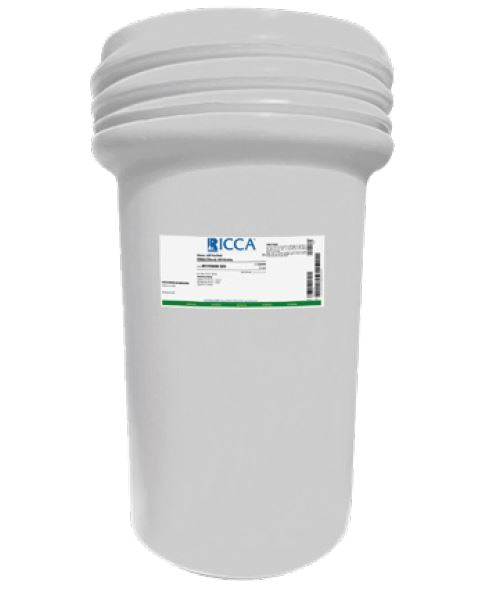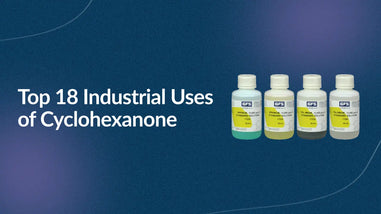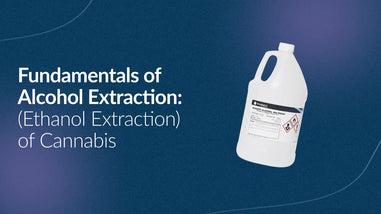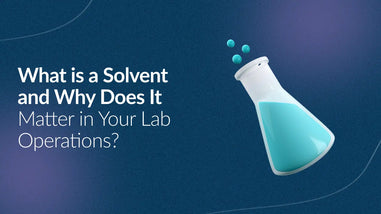- No products in the cart.
In the intricate world of laboratory experiments, precision and reliability are paramount. Many experiments hinge on the quality of reagents and solvents used, and sterile water holds a pivotal position in this spectrum. The use of contaminated water in laboratory experiments can jeopardize results, compromise the integrity of data, and potentially lead to erroneous conclusions. In this blog post, we explore the critical role of sterile water in lab experiments and delve into best practices for ensuring the purity and reliability of this essential resource.
Why is Sterile Water Crucial?
Sterile water, by definition, is free from microorganisms, ensuring that it doesn't introduce unwanted variables into experiments. The absence of bacteria, fungi, viruses, and other contaminants is crucial, particularly in biological, molecular, and cell culture experiments, where even minute impurities can alter results.
Applications of Sterile Water in the Lab:
-
Cell Culture: In cell culture, the environment in which cells grow and interact is carefully controlled. Sterile water is used to prepare culture media, rehydrate cells, and dilute solutions without introducing contaminants that could compromise the health and behavior of cells.
-
Molecular Biology: PCR (Polymerase Chain Reaction), DNA and RNA isolation, and other molecular biology techniques demand a sterile environment. Any contamination in the water used for these processes can lead to false positives or negatives, impacting the accuracy of genetic analysis.
-
Chemical Reagent Preparation: Many chemical reactions in the laboratory require precise conditions. Sterile water is often used to dissolve and dilute reagents, ensuring that the composition of the reaction is exact and reproducible.
-
Buffer and Solution Preparation: Biological and chemical assays often involve the use of buffers and solutions. Sterile water is a fundamental component in the preparation of these solutions to maintain the purity and consistency of the experimental conditions.
Best Practices for Using Sterile Water in Lab Experiments
When using sterile water in lab experiments, it is important to follow best practices to ensure that the water remains sterile. Here are a few tips:
- Use the correct type of sterile water: There are different types of sterile water available, each with its own specific uses. For example, pyrogen-free water is used for experiments that are sensitive to endotoxins. It is important to choose the correct type of sterile water for your experiment.
- Store sterile water properly: Sterile water should be stored in a clean, dry place. Avoid storing sterile water in direct sunlight or near heat sources.
- Use sterile water promptly: Sterile water is not sterile forever. It is important to use sterile water promptly to avoid contamination.
- Use sterile techniques when handling sterile water: When handling sterile water, it is important to use sterile techniques to prevent contamination. This includes wearing gloves and disinfecting all surfaces that come into contact with the water.

Choosing the Right Sterile Water for Your Lab:
The choice of sterile water depends on the specific requirements of your experiments. Here are common types:
-
Sterile Distilled Water:
- Suitable for general laboratory use, particularly when the absence of ions and minerals is not critical.
-
Sterile Deionized Water:
- Essential for applications where the removal of ions is crucial, such as molecular biology and chromatography.
-
Cell Culture Grade Water:
- Specially processed and tested for the absence of endotoxins, nucleases, and other contaminants. Ideal for critical cell culture applications.
-
PCR Grade Water:
- Free from DNA, RNA, and enzymes, ensuring the purity required for PCR and other molecular biology applications.
Conclusion: Elevating Experimental Precision through Sterile Water Practices
In the dynamic landscape of laboratory experiments, where precision is paramount, the role of sterile water cannot be overstated. Implementing best practices in the handling, storage, and selection of sterile water is not just a procedural detail—it is an investment in the reliability and validity of experimental outcomes.
Researchers and lab managers alike should prioritize the quality of water used in experiments, recognizing that the seemingly simple act of choosing sterile water contributes significantly to the integrity of scientific research. By adhering to best practices, laboratories can elevate their experimental precision, enhance data reliability, and ensure that the quest for knowledge is built on a foundation of purity and accuracy.
For over 40 years, Lab Pro Inc. has been committed to delivering highest quality lab chemicals, lab supplies, hand tools, lab equipment, reagents, distance learning kits, and cleanroom PPE apparel. Renowned by global medical device companies and laboratories, we ensure exceptional quality in every product. Contact us online or call 888-452-2776 to learn more. Discover top-notch lab supplies and elevate your experiments today!












































